 News
News
Passion fruit, also known as passion fruit, cool wire or bunch of egg bags, and the scientific name is Passiflora edulis, belongs to the Lac Tien family.
Passion fruit originates from a number of countries in South America (such as Brazil, Paraguay and Argentina). Currently, passion fruit is grown in many places in tropical and subtropical regions, stretching from India, Sri Lanka, New Zealand, Colombia, Ecuador, Brazil, Peru, Indonesia, Florida, California, Hawaii, Mexico , East Africa and South Africa.
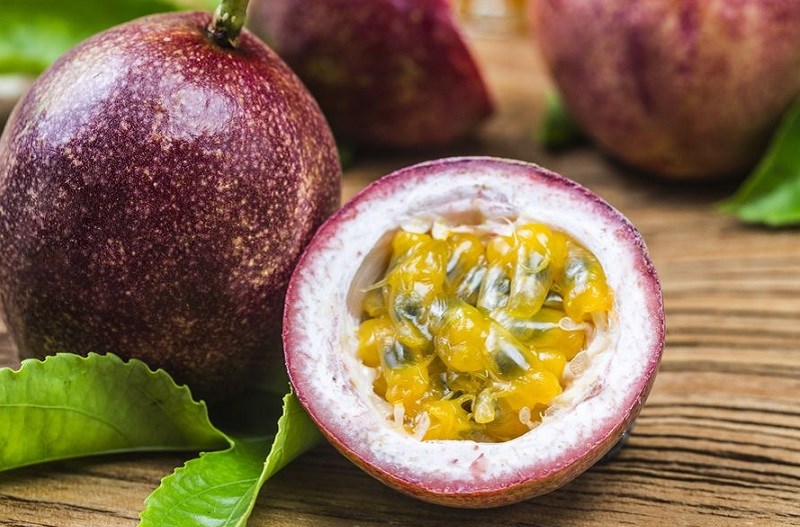
Passion fruit is a vine, perennial plant. Stems are smooth, creeping, up to 6m long, with little fluff and many tendrils. Leaves are 3-lobed propeller-shaped, 6-15cm long and alternate. The flower has 5 petals forming a purple-white rim.
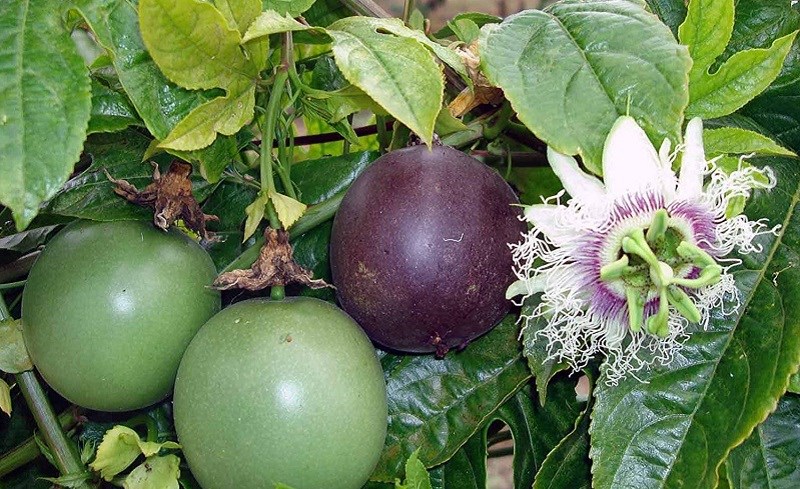
Passion fruit is spherical or oval, succulent, about the size of a chicken egg. The fruit is initially green and turns yellow or deep burgundy as it ripens. The black seeds, numerous in each fruit, and the yellow mucus surrounding the seeds are the edible part, which has a sweet and sour taste and aroma.
Passion fruit has 2 varieties that you can distinguish by appearance:
Golden Passion Fruit : Smooth skin, light yellow color, sour taste. The size can grow as big as a grapefruit.
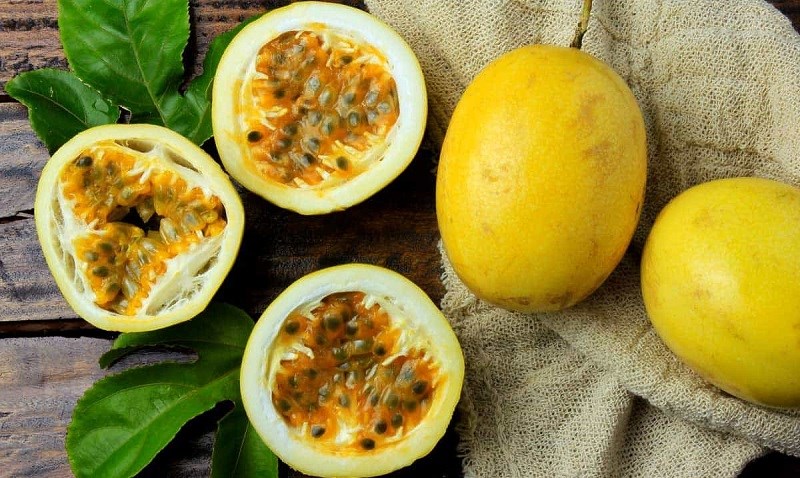
Red Passion Fruit : The rind is burgundy, less acidic and more aromatic than the yellow passion fruit. Similar in size to a lemon.
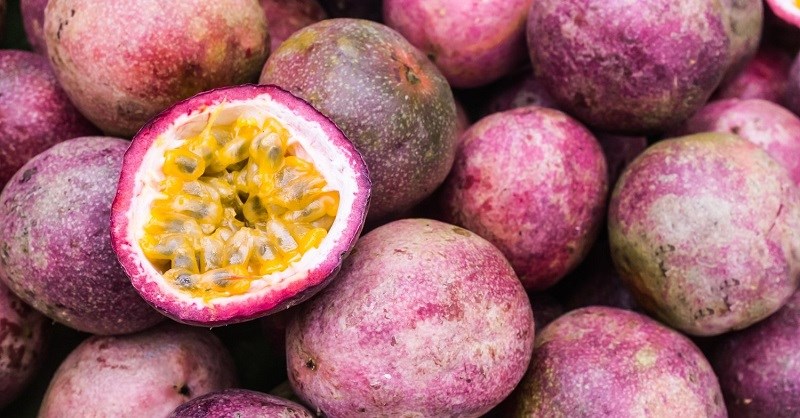
In 236g purple passion fruit will provide 229 calories and other nutrients such as:
Carbs make up the majority of passion fruit, in 55 grams of carbs, half of it is fiber and the rest is natural sugar. Passion fruit has a low glycemic index (GI) of 4.5 - 27.5, so the blood sugar of passion fruit is also low, ranging from 0.5 - 5.2.
The fat in passion fruit is very little, in 236 grams of passion fruit, the fat only accounts for less than 2 grams.
Protein is also not too much in passion fruit, usually in 1 cup of passion fruit (about 236g) only 5.2g is protein.
In passion fruit contains high levels of vitamin A , vitamin C , potassium and compounds beneficial as phosphorus , calcium , of iron , choline , magnesium , folate , niacin , vitamin K .
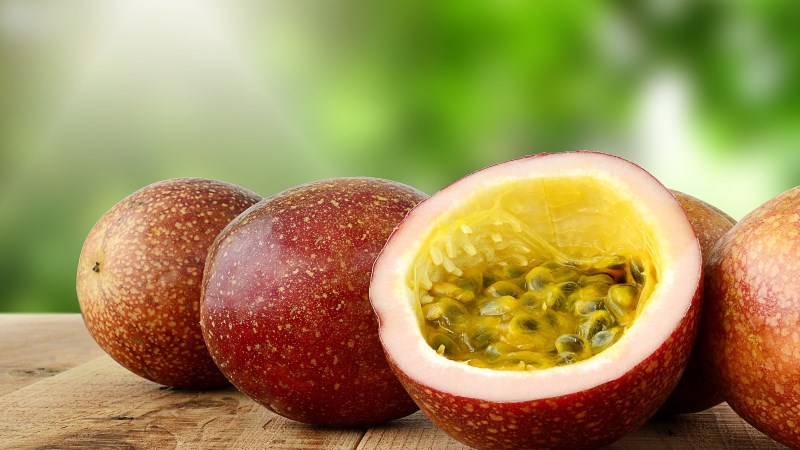
Antioxidants are abundant in passion fruit to help protect the body from damaging free radicals . Passion fruit provides vitamin C and beta carotene , polyphenols are compounds with good antioxidant capacity.
As an important antioxidant, so you need to add vitamin C to your daily diet, vitamin C supports the immune system in the body as well as makes the aging process take place in a balanced way. equal.
Beta carotene - a precursor of vitamin A, when loaded into the body, it will convert into vitamin A, a substance that is essential to help your vision maintain good. A diet rich in beta carotene may help reduce the risk of cancers such as colon, stomach and breast cancer.
Polyphenols are potent antioxidants and anti-inflammatory compounds , which means they can help reduce the risk of chronic inflammation as well as markers of heart disease.
In addition, passion fruit seeds are also rich in piceatannol - a polyphenol that improves insulin sensitivity in overweight men. When taken as a supplement, it can help reduce the risk of type 2 diabetes .
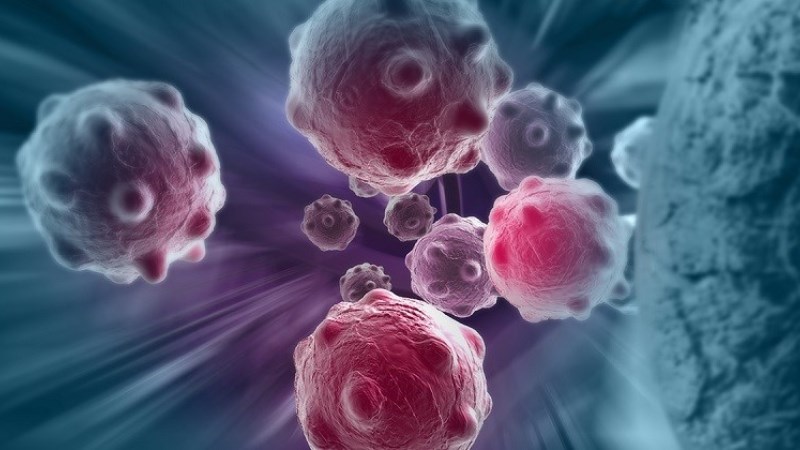
There are about 2 grams of fiber contained in 1 small passion fruit, fiber is an important substance to help keep the intestinal system healthy, in addition, it also helps prevent constipation .
Soluble fiber can prevent blood sugar spikes and slow down the digestion of food. In addition, a diet high in fiber also helps reduce the risk of diseases such as heart disease, diabetes and obesity.
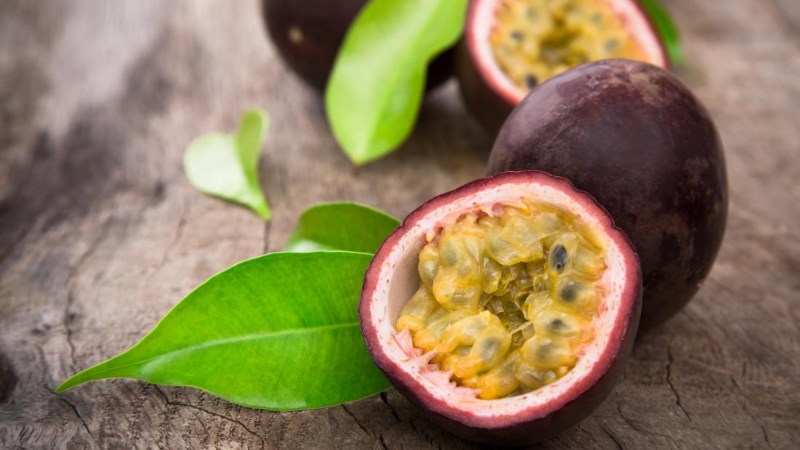
Passion fruit peel can help reduce inflammation thanks to its antioxidant content when used as a dietary supplement.
One small study looked at a 4-week observational study of supplements made from purple lemon peel in patients with asthma. After that, it was found that the cough and shortness of breath of the supplement group had improved.
And another study from people with osteoarthritis of the knee, who took purple passion fruit peel extract felt less pain and stronger joints than those who didn't take the supplement.
However, the effect of antioxidants on pain and inflammation in people with osteoarthritis still requires more research to have clearer information about the effects of this substance.

Passion fruit does not raise blood sugar after eating because it is a fruit with a low glycemic index, which is a good food for people with diabetes to use.
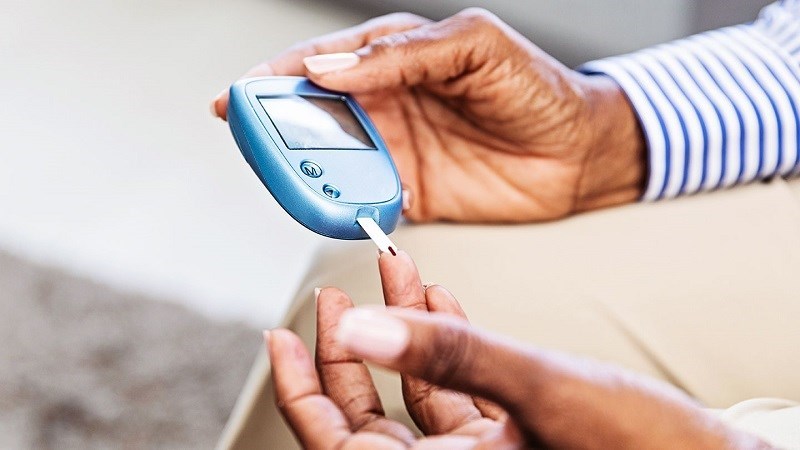
Some studies have found compounds in passion fruit seeds that help improve insulin sensitivity. Improving insulin sensitivity can reduce the risk of many diseases, including diabetes.
A study conceived on a small scale in 2017 was studied on you, have discovered that the compound piceatannol could also help improve the metabolism, and the research animal research also gave results similar .
Researchers gave overweight men 20mg of piceatannol per day for 8 weeks and found that these men improved health, metabolism and insulin sensitivity.
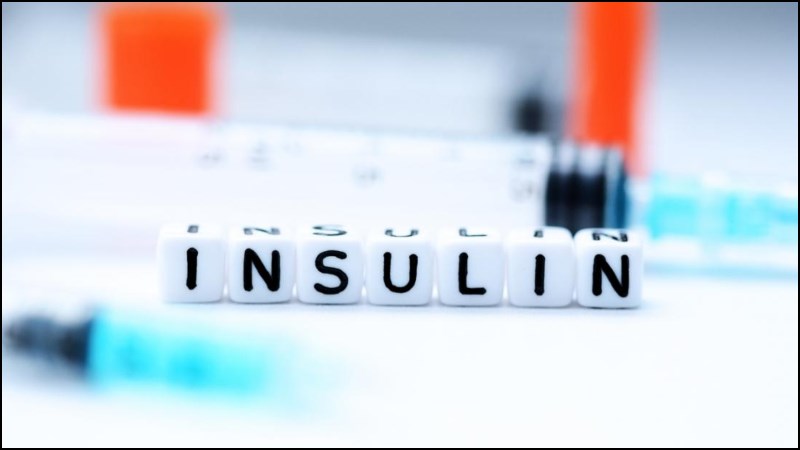
Because it contains a lot of vitamin C - a great antioxidant, passion fruit helps strengthen the immune system and protect the body from the harmful effects caused by free radicals.
In addition, vitamin C also helps the body absorb more iron and increases the body's ability to fight infections.
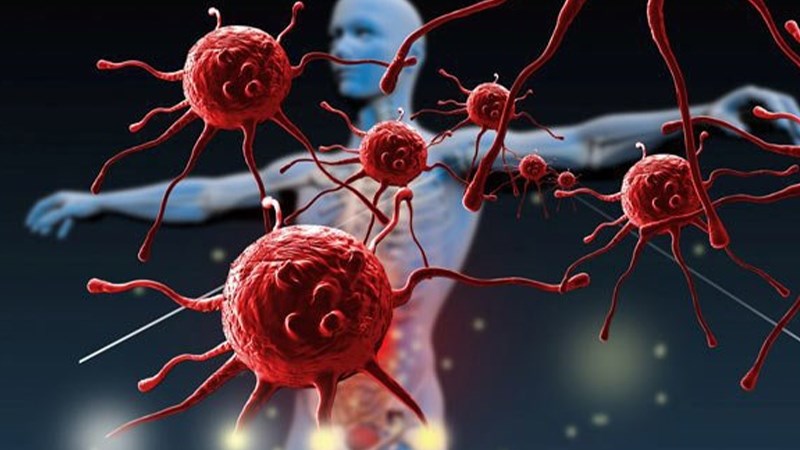
Passion fruit contains a very large amount of potassium that is good for the heart and also contains a little more sodium. When eating passion fruit whole seeds, it will help remove excess cholesterol in the blood vessels thanks to its high fiber content.
A diet high in fiber will help reduce the risk of heart disease. In addition, a diet rich in potassium and low in sodium helps to normalize and lower blood pressure.

Magnesium is an important mineral that helps reduce stress and anxiety which is contained in a lot of passion fruit. A review from 2017 summed up that magnesium can help manage anxiety levels in people consuming foods that contain potassium.
However, the results of this assessment are still unclear, so researchers are still having to do more precise studies.

In 1 cup of passion fruit will have 821mg of potassium, accounting for 24-32% of the recommended daily amount of potassium for adults. Potassium helps to reduce blood volume and pressure by increasing urinary sodium excretion.
In addition, potassium also helps promote strong dilation, or maintain the flexibility and expansion capacity of arteries. Providing the body with potassium-rich vegetables and fruits can help lower blood pressure, reduce the risk of stroke and kidney damage.
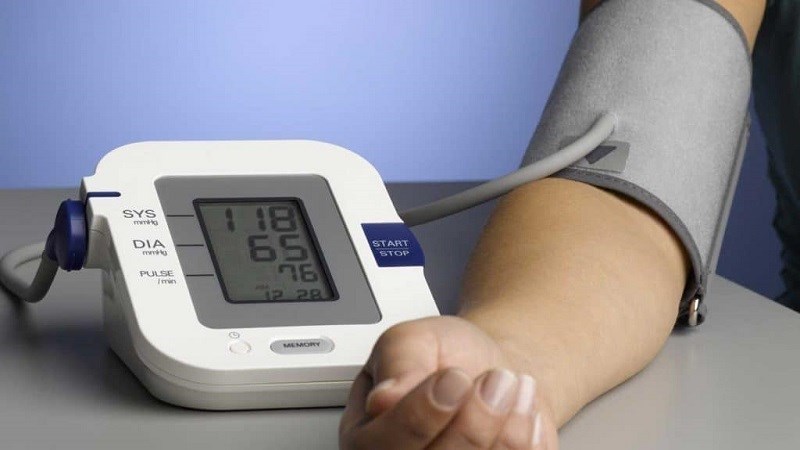
Compared to the conventional way of eating, the use of plants will give better weight loss results, studies have shown that a vegan and low-fat diet is significantly more effective in weight loss than a diet. high-fat diet.
Passion fruit contains a lot of fiber and only a small amount of fat, so passion fruit is suitable for people on a diet , thanks to the fiber content, the body will feel full when eating vegetables. High-fiber fruits like passion fruit.

Vegetables are known to help reduce the risk of cancer, especially with colored fruits like passion fruit.
Thanks to the antioxidants found in the seeds, peel and pulp, including beta carotene and anthocyanins, passion fruit has many different colors, so each peel color will have its own antioxidants.
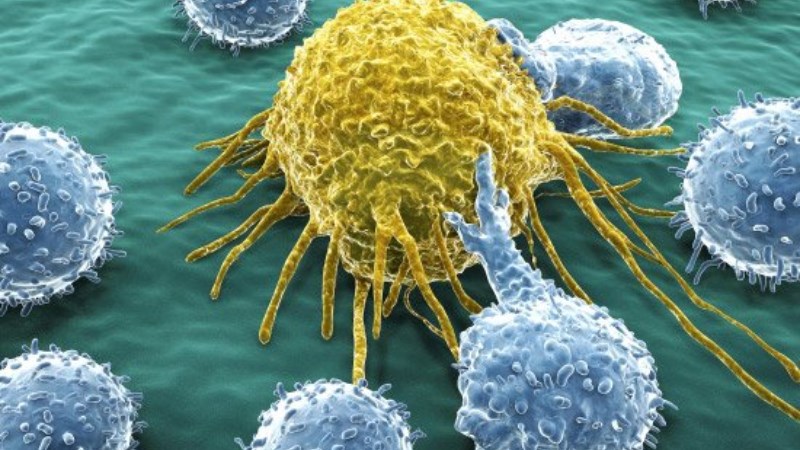
In addition to antioxidant effects, vitamin C in passion fruit is also a precursor of collagen - an important structural component of the skin.
Passion fruit helps provide enough vitamin C thanks to its rich source of vitamin C, vitamin C stores will help regenerate skin and heal wounds.

Iron deficiency causes anemia and produces symptoms such as cognitive decline, poor immunity leading to weakness, fatigue.
Passion fruit is a rich source of vitamin C and thereby helps the body to improve iron absorption, a cup of passion fruit will provide 21-48% of the recommended amount of iron, which is almost equal to the amount of vitamin C in a cup. days, thereby possibly helping to achieve stable blood concentrations.

Passion fruit can help promote digestive health thanks to its excellent source of fiber.
Passion fruit contains soluble fiber in both the peel and the inside of the pulp, fiber improves bowel movements, prevents constipation, and lowers total cholesterol by excreting it in the stool.

Thanks to minerals such as magnesium, calcium, iron and phosphorus found in passion fruit, when combined with other foods in the diet such as fruits, vegetables , and dairy , it helps support bone health. In addition, it can prevent osteoporosis.

The mixture of bioflavonoids in passion fruit can help actively treat respiratory diseases such as asthma to soothe the muscles of cough and shortness of breath.

The inside of passion fruit seeds contains a compound called Scirpusin B, which is considered a vasoconstrictor, helping to dilate blood vessels and promote stable blood circulation.
In addition, potassium can help with vasodilation, iron and copper can also promote circulation, and especially they are essential minerals in the production of red blood cells .

Folate in passion fruit is an important substance before and during pregnancy, as it can help with growth during fetal development, and prevent neural tube defects in babies.
During breastfeeding, it can also help boost your baby's immune system and bone health at this time.

Most passion fruit is friendly to the health of users, but there are some exceptions, especially those who are sensitive or have allergies. Therefore, when using passion fruit, please note the following:
For people allergic to latex : May be sensitive to passion fruit , experiencing some allergic symptoms on the body that cause discomfort and affect health, such as rash, nausea and dizziness. In particular, the peel contains small amounts of cyanogenic glycosides that can be harmful. Therefore, people with latex allergies should avoid using passion fruit.
For pregnant women : Improper use or overdose of passion fruit can cause uterine contractions, harming the fetus. Please consult your doctor when using.
For people preparing for surgery : When drinking passion fruit causes the central nervous system to be stimulated, hindering the anesthetic process and the dose of anesthetic used. Therefore, avoid using passion fruit at least 2 weeks before surgery and should consult your doctor.

For those who are taking medication : Those who are taking medication for disease such as sedatives, antihistamines should consider when drinking and using passion fruit in any form. Because passion fruit can easily cause side effects such as difficulty breathing, drowsiness and even reduce the effect of the drug.
For people with kidney stones, stomach ulcers : Avoid using passion fruit because it will stimulate the amount of acid in the stomach to secrete more, harming stomach health, making the disease worse. It also affects kidney function.
In addition, you should also consider eating passion fruit seeds. Since passion fruit seeds will not be digested, they will be excreted in the feces. Even passion fruit seeds can fall into the appendix during migration, causing inflammation. However, you can still consume less passion fruit seeds by chewing them thoroughly before swallowing and should only consume less!
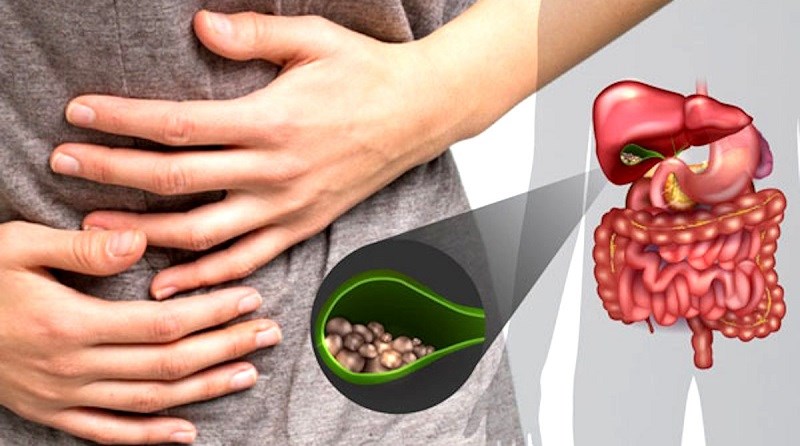
-800x450-12.jpg)